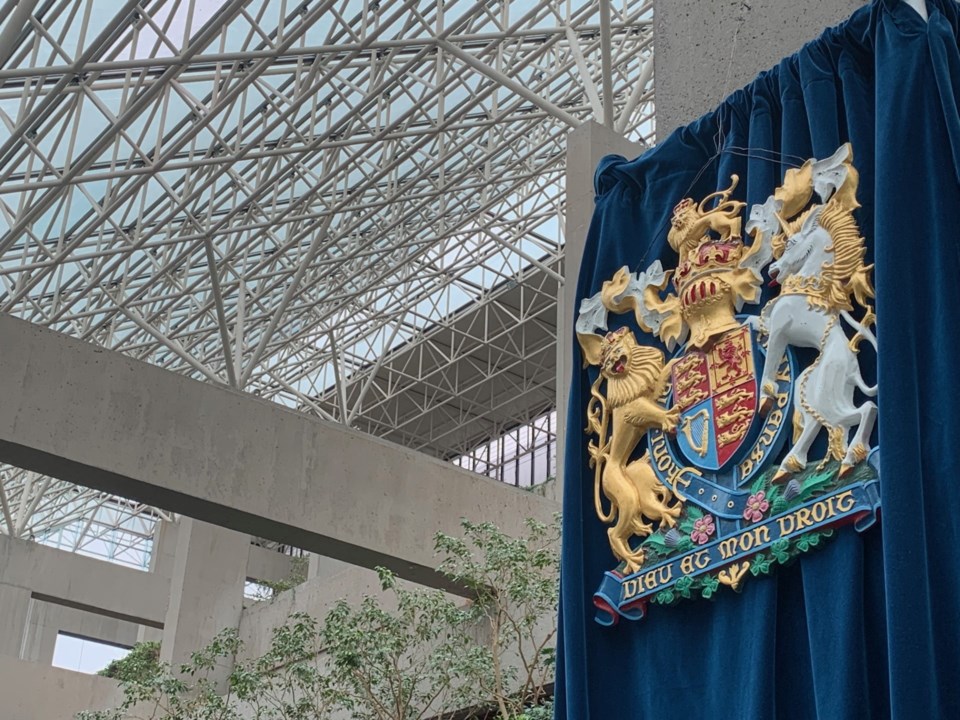B.C.’s Court of Appeal has upheld the conviction of a man on seven counts of possession of controlled substances for the purposes of trafficking in a case the chief justice called entirely circumstantial.
In a Sept. 9 unanimous verdict of three justices, the court agreed with a B.C. Supreme Court judge’s conviction of Scott William Cashman.
Justice Martha Devlin sentenced Cashman on May 30, 2022, to six years in prison for seven counts of drug trafficking involving methamphetamine, cocaine, fentanyl, ketamine, codeine, hydromorphone and morphine.
"While Mr. Cashman was not the directing mind, he was a trusted associate of [Christopher Leigh Harmes] and engaged in the supply-level trafficking operation that distributed a variety of harmful controlled substances, including fentanyl, or ‘public enemy number one,’” Devlin said.
In the new appeal decision, Chief Justice of B.C. Leonard Marchand said Cashman lived on the lower floor of a Mission home while a co-accused lived on the upper floor.
He said that, in a 2020 warranted search, the police found controlled substances worth approximately $850,000, over $100,000 in cash, drug trafficking paraphernalia and firearms on the upper floor.
“The police found no drugs, cash, drug trafficking paraphernalia or firearms on the lower floor,” Marchand said. “No direct evidence tied the appellant to any of the drug trafficking items or firearms on the upper floor.”
“Overall, Mr. Cashman contends he was an uninvolved co-tenant who did not know about or control — and thus possess — the drugs found in the Columbia Street residence,” Marchand said.
The co-accused and conviction
Cashman was originally charged with Harmes, whose charges were dealt with before going to trial.
In April 2022, Devlin sentenced Harmes to a global sentence of 14 years for 15 drug, firearm and breach offences.
“Located inside the residence was 3.5 kilograms of fentanyl, 1.6 kilograms of methamphetamine, and various amounts of other controlled substances,” Devlin said in her May 2022 conviction of Cashman.
The appeal
Marchand said the only issue on Cashman’s trial was whether or not he “had knowledge of and control over — and thus possession of — the controlled substances located on the upper floor of the residence.”
The Crown argued at trial he did, although the evidence was circumstantial.
Devlin found there was a substantial body of evidence to establish Cashman had possession of the drugs at issue, beyond the mere fact he was residing at the Mission residence.
The house’s security system was operated from Cashman’s room, the court heard.
“If Mr. Cashman were completely detached from the drug trafficking operation, then it would defy logic and common sense for the security system’s monitor to be located in his bedroom,” Marchand wrote.
Cashman appealed on three grounds.
He contended the judge erred by admitting and relying on police expert opinion evidence regarding who would have knowledge of and access to a location where illegal drugs would be present for the purpose of trafficking.
Marchand said Devlin inaccurately summarized the police expert opinion evidence about access and trust. But, he added, that did not taint her final analysis.
An RCMP sergeant was qualified as an expert in the use of, price, packaging, and distribution of controlled substances, as well as the structure and hierarchy of drug distribution networks.
But, said Marchand, the evidence did not invite the judge to infer Cashman’s guilt based on the sergeant’s experience with other guilty individuals.
“Rather, it supported an inference Mr. Cashman was involved in illicit activity based on the trust reposed in him by Mr. Harmes,” Marchand said.
“[The sergeant’s] evidence was therefore both logically and legally relevant.”
Cashman argued Devlin misapprehended the sergeant’s testimony that the security system was put in place to protect the controlled substances at the residence, when the officer gave no such evidence.
He submitted the judge misapprehended that there was “no evidence” as to how the security system operated, when there was evidence one of the investigating police officers reviewed recorded footage from the hard drive.
But, said Marchand, it wasn’t how the system operated that was material to Devlin.
“Rather, regardless of the mode of operation of the security system, what was important to the judge was the fact the security system existed at all and that a monitor was located in Mr. Cashman’s bedroom," Marchand said.
"On the evidence, it was clearly open to her to find Mr. Cashman and Mr. Harmes were security-conscious because of the drug trafficking operation," Marchand said.
“The verdict was not unreasonable,” Marchand ruled.


